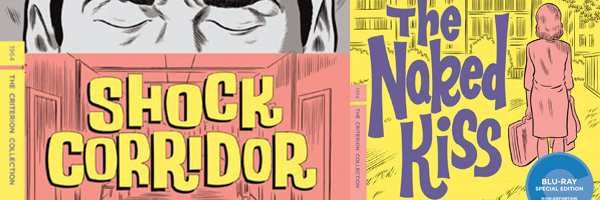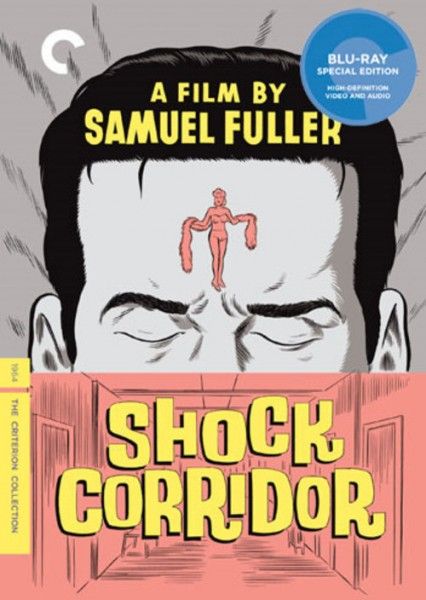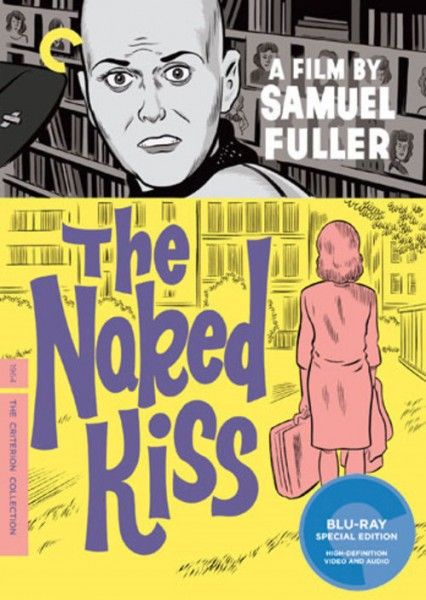The legend of Sam Fuller is such that it’s hard to believe he was real, but brother, he was. Fuller started out as a newspaperman, and when World War II broke out he signed up and fought with the Big Red One, going to Africa, Italy, and much of Europe. When he came back, he moved to Hollywood, and after a couple of his scripts sold, he decided to become a filmmaker. Known for constantly smoking a cigar, and sometimes wearing a military uniform while shooting, he would often start a take by firing a gun in the air. He told pulp fiction stories, about war, westerns, about modern crime that had a confrontational, no-bullshit approach. He had a good relationship with 20th Century Fox, which helped him deliver his B movie thrills through most of the 1950’s and created one of the most fascinating filmographies in all of cinema.
But – like many of his peers, by the 1960’s the system was changing, and his low budget films were no longer drawing the business they used to. And so he struck out on his own and made two films that still manage to sum up much of the filmmaker’s interests and intentions. They may not be his best films, but they could be the most Fuller of all his movies. 1963’s Shock Corridor and 1964’s The Naked Kiss mark the end of his Hollywood run (until he was briefly resurrected to make The Big Red One in 1980), though both were done with independent financing. Both are also masterpieces shot by ace cinematographer Stanley Cortez, and thank god Criterion has looked after them over the years. My reviews of Shock Corridor and The Naked Kiss on Blu-ray follow after the jump.
Shock Corridor follows reporter Johnny Barrett (Peter Breck) as he fakes a mental illness to figure out who committed a murder in an insane asylum. His girlfriend Cathy (Constance Towers) reluctantly agrees to play his sister (who he’s supposedly been touching inappropriately), and he manages to bluff his way in. Once there he has three men he wants to talk to: The first is Stuart (James Best), who was a soldier who decided to become a communist because of his experiences in war, the second is Trent (Hari Rhodes), who thinks he’s a founder in the KKK because he lost his mind as one of the first black students to go to an integrated school, and the final witness is Boden (Gene Evans), one of the inventors of the atomic bomb.
There is a murder mystery here, but Fuller would tell you in his direct way that this film isn’t about a murder mystery, the film is about America. I haven’t interviewed a single cast member of Fuller’s who didn’t break out into a Fuller impression, and it’s hard not to want to adapt one now. Fuller made a film about the country at the time and though when he was making it John F. Kennedy had yet to be assassinated, this was a film about that before it even happened. The country was going through a number of huge changes in terms of race relations, but also Fuller was acutely aware of what America’s involvement in Asia was like (he made the first film to deal with Vietnam in China Gate) and so he recognized the madness around him After these two films, Fuller became an ex-patriot. Perhaps partly because his art was appreciated more abroad, but likely partly because he was sick of the sickness he saw at the core of America. This film is all about that, and though the film does function as a murder mystery, one of the strengths of the film is that Johnny in investigating the murder starts to slip away from sanity.
Side note: the first time I saw this film I wasn’t entirely sober, and the film – which is about a person losing their mind – had a startling effect on me. I don’t encourage watching movies whilst not sober, but this is one of those films that hit me like a diamond bullet. I’ve had few film experiences that got so under my skin. Also, the scene with the nymphomaniacs is one of the great horror scenes in cinema.
The Naked Kiss is a less explicit condemnation, but no less potent in its withering critique of America. Towers stars here as Kelly, a prostitute who opens the film by beating the shit out of the viewer (via POV), only to reveal that she’s wearing a wig and has been recently shaved bald. From there she takes money from the man she’s clobbered, but only the amount she was due. She then leaves and goes to a small town named Grantville, where she sells champagne, and her first customer is Capt. Griff (Anthony Eisley) - the town’s sheriff - who suggests she go across the way to Candy’s house of prostitution, where selling her body is more permissible than in Grantville. But experiencing this Kelly changes her mind, and she tries to find a real job. She ends up at a hospital teaching and helping crippled kids deal with their disabilities.
Her work is celebrated, and she meets the town’s rich bachelor, J.L. Grant (Michael Dante), and the two begin a romance, but when the two kiss for the first time, she senses there’s something different about Grant. It isn’t until later that his secret is revealed, and a murder mystery comes to the fore, as Kelly is put on trial for doing something she feels she was in the right in.
What’s amazing about this film is that finding the seedy underbelly of small town America became good sport in the 1980’s and 1990’s in American cinema. From American Beauty to Blue Velvet, there are a number of either “great” or great works that have made hay with the difference between the public’s perception/created illusion and the reality of how most of America lives. Mostly this was meant to contrast the way American viewed itself in the 1950’s and 1960s. But Fuller was there at the time showing the rank hypocrisy of not only small town America, but the world. Kelly was/is a former prostitute, but for a culture that supposedly supports Christian values, there are some things that one can never leave behind, and so the minute Kelly gets herself in any sort of trouble, the thing that she was defines her to people who know that she’s a decent person.
Only Sam Fuller can get away with showing crippled kids as he does, and only Fuller would think to do it. It’s weird, and it suggests an askew sensibility, but it’s never cloying or fake. Fuller dealt with truths, and he was great at creating these worlds that – where his function as critic is never overwhelming to the narrative. But the end of the film is such a great “fuck you.” Fuller was pissed, and these films are meant to be an auto-critique. Fuller was a journalist, and he saw the world through that unflinching eye. With these films, he wrote the greatest poison pen letter to the country he loved, and fought for. These are great incendiary works that are just as potent today as they were when they came out. If you haven’t discovered Sam Fuller, these two films are a good gateway to his genius.
The Criterion collection put out both films early on in their DVD run. Both films came with a theatrical trailer, and were non-anamorphic. These new versions come in 2.0 Monaural and in widescreen (1.66:1), looking and sounding better than ever. It’s hard to compare to the original DVD releases, as they were done early on in the format’s creation, and they look smeary and kind of terrible. These versions come across as definitive. They also come with great booklets, with art done by Daniel Clowes. It’s a full package deal here.
Shock Corridor comes with an interview with star Constance Towers (29 min.) and the documentary “The Typewriter, the Rifle and the Movie Camera” (56 min.) with comments from Tim Robbins, Martin Scorsese, Jim Jarmusch, and Quentin Tarantino along with interviews with Fuller himself. It’s a great career overview, and features some of the staples of Fuller’s most famous anecdotes. Also included with the film is the theatrical trailer.
The Naked Kiss offers another interview with Towers (29 min.) on the making of the film, and this one goes more for the movie, while the one on Shock Corridor gets more into her relationship with “Sammy” and her career. It’s followed by the South Bank Show’s “Sam Fuller” episode (32 min.), which walks through much of his career, but focuses mostly on The Naked Kiss and Shock Corridor, with additional comments from Wim Wenders. “Cineaste Du Notre Temps” (23 min.) is more on Fuller from 1967, and mostly focuses on the later films. “Cinema Cinemas” (13 min.) is from 1987, and offers another interview with Fuller where he talks about his war experiences and his films. This is rounded out by the film’s theatrical trailer.



